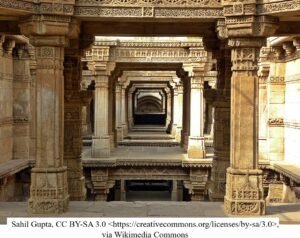Ahilyabai Holkar was a vibrant young Hindu girl from a middle-class family who rose to become the ruling queen of Indore within the Maratha kingdom. She established the city of Maheshwar (currently in Madhya Pradesh) as the seat of the Holkar dynasty. Born in 1725 in Chondi, Maharashtra, to Marathi Hindu shepherd parents, Ahilyabai’s early life reflected her innate compassion and leadership.
From a young age, she was dedicated to serving the poor and hungry in her community and took great care of plants and animals. Her qualities caught the attention of Malhar Rao Holkar, a prominent Maratha army commander, during a local event. Impressed by her intelligence and valor, he proposed her marriage to his son, Khanderao Holkar, marking the beginning of her journey as a future queen.
Although educating girls was uncommon in her time, Ahilyabai received a comprehensive education at home. She became well-versed in Hindu spiritual texts, administration, accounting, and politics. By the age of 19, her father-in-law, recognizing her exceptional abilities involved her in matters of diplomacy, finance, and the ongoing conflicts with Mughal rulers.
Ahilyabai and Khanderao had two children: a son, Malerao, and a daughter, Muktabai. Tragically, Khanderao was killed in a battle, and following his death, Ahilyabai assumed the role of ruler and Rajmata (queen mother) of the Indore-Malwa region.
As a visionary leader and proficient politician, Ahilyabai promoted social harmony and religious tolerance during her reign. She championed women’s empowerment, encouraged female education, supported widow remarriage, and opposed oppressive practices such as Sati.
Under her administration, Indore flourished as a progressive city, with the establishment of industries and educational institutions. Ahilyabai also undertook the construction and renovation of Hindu temples across India, ensuring a steady supply of Ganga water for various shrines. Notably, she spearheaded the renovation of the Kashi Vishwanath Temple in Varanasi, the Gauri Somnath Temple in Chola, and the Dashashwamedha Ghat in Banaras.
Revered as “Devi Ahilyabai,” she earned immense respect during her lifetime and was venerated as a saint by her people after her death. Her legacy as a compassionate ruler, devout leader, and reformer endures in Indian history.
— Sanjay Mehta


